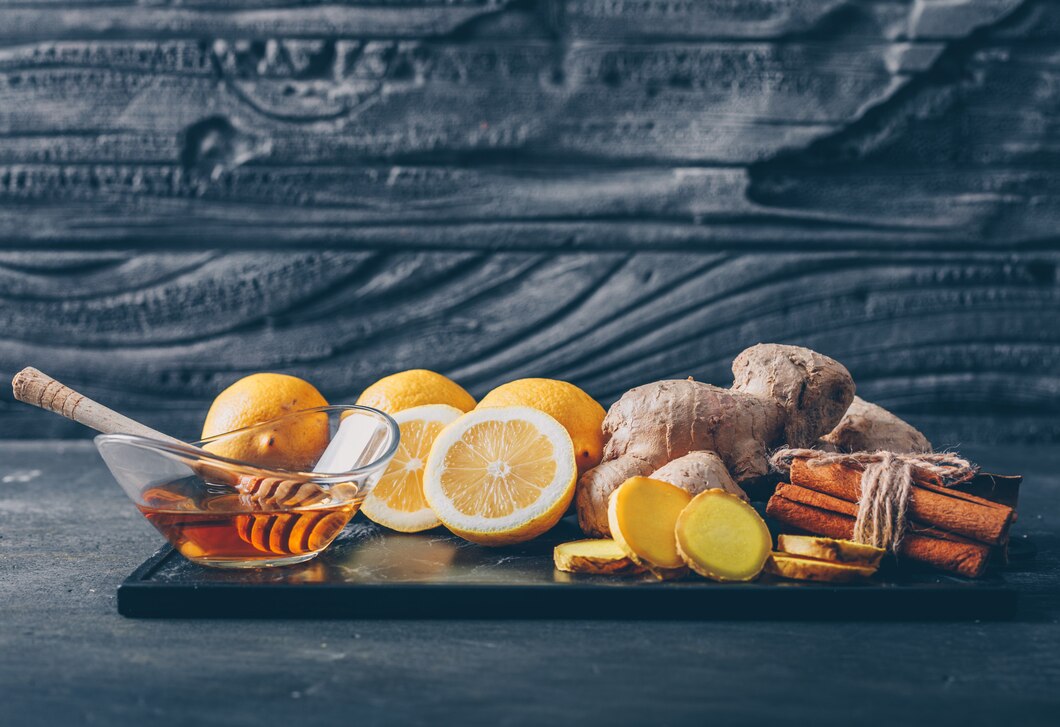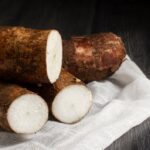Seasonal allergies, also known as hay fever or allergic rhinitis, can be a major discomfort for many South Africans, especially during the change of seasons. These allergies are often triggered by pollen, dust, and other allergens, leading to symptoms like sneezing, itchy eyes, and nasal congestion. While medication helps, incorporating specific foods into your diet can support your immune system and alleviate allergy symptoms. Here are 20 foods that may help combat seasonal allergies:
1. Ginger
Ginger has strong anti-inflammatory properties that can help reduce allergy-related symptoms such as a runny nose, throat irritation, and swelling. It acts as a natural decongestant and can soothe irritated airways.
2. Citrus Fruits
Oranges, lemons, grapefruits, and other citrus fruits are rich in vitamin C, which boosts the immune system and acts as a natural antihistamine. Consuming these fruits during allergy season may help reduce symptoms.
3. Garlic
Garlic contains quercetin, a natural antihistamine, which helps to block the production of histamines, the chemicals that cause allergy symptoms. Garlic also strengthens the immune system.
4. Turmeric
Turmeric, popular in South African curries, contains curcumin, a powerful anti-inflammatory compound. It helps reduce the inflammation and swelling associated with seasonal allergies.
5. Local Honey
Consuming small amounts of local honey is thought to expose your body to the pollen in your area, helping to build up a natural immunity. This can potentially reduce the severity of allergy symptoms over time.
6. Apples
Apples are a rich source of quercetin, a natural antihistamine. Quercetin helps prevent cells from releasing histamines, which can trigger allergic reactions like sneezing and a runny nose.
7. Salmon
Rich in omega-3 fatty acids, salmon and other oily fish like mackerel and sardines reduce inflammation and improve respiratory health. These fatty acids also help to support the immune system, making them beneficial during allergy season.
8. Broccoli
Broccoli is a fantastic source of vitamin C and antioxidants that support the immune system. It also helps to open nasal passages, which can ease congestion during an allergy flare-up.
9. Spinach
Spinach is high in carotenoids, such as beta-carotene, which have been shown to reduce allergy symptoms by supporting the immune system and fighting inflammation.
10. Pumpkin Seeds
Pumpkin seeds are packed with magnesium, which can help to relax muscles, including the muscles of the respiratory system. This can make it easier to breathe when seasonal allergies cause congestion.
11. Onions
Onions are another good source of quercetin, which has anti-inflammatory and antihistamine effects. Raw onions in salads or grilled onions in sandwiches can be beneficial during allergy season.
12. Kefir
Kefir, a fermented dairy product, contains probiotics that strengthen gut health. A strong immune system begins in the gut, and kefir can help your body manage allergens better by boosting immunity.
13. Bell Peppers
Bell peppers are rich in vitamin C, which acts as an antihistamine to combat the allergic reactions caused by pollen and other allergens. Eating bell peppers can help reduce sneezing and congestion.
14. Flaxseeds
Flaxseeds are packed with omega-3 fatty acids and antioxidants, which help reduce inflammation in the body and ease respiratory issues that come with allergies.
15. Tomatoes
Tomatoes are a great source of lycopene, a potent antioxidant that helps to lower inflammation. They also provide vitamin C, which boosts immunity and reduces histamine levels.
16. Walnuts
Walnuts are an excellent source of omega-3s and vitamin E, both of which help to strengthen the immune system and reduce allergic reactions. They are a healthy snack option during allergy season.
17. Green Tea
Green tea contains antioxidants called catechins, which have been shown to inhibit the release of histamines. Drinking green tea regularly can provide relief from nasal congestion and sneezing.
18. Carrots
Carrots are rich in beta-carotene, which converts to vitamin A in the body. Vitamin A helps strengthen mucous membranes in the nose, eyes, and throat, which can reduce the severity of allergy symptoms.
19. Berries
Strawberries, blueberries, and blackberries are full of antioxidants and vitamin C, which help reduce inflammation and strengthen the immune system. These fruits also protect cells from damage caused by allergens.
20. Sweet Potatoes
Sweet potatoes are loaded with beta-carotene and vitamin C, which support respiratory health and reduce the inflammation often triggered by seasonal allergens.
Incorporating these foods into your diet can help ease seasonal allergy symptoms by reducing inflammation, strengthening the immune system, and acting as natural antihistamines. A diet rich in vitamins, antioxidants, and omega-3s can make a big difference in managing the discomforts of allergies, allowing South Africans to enjoy the changing seasons with less hassle. However, always consult a healthcare professional for personalized advice, especially if allergies are severe.








